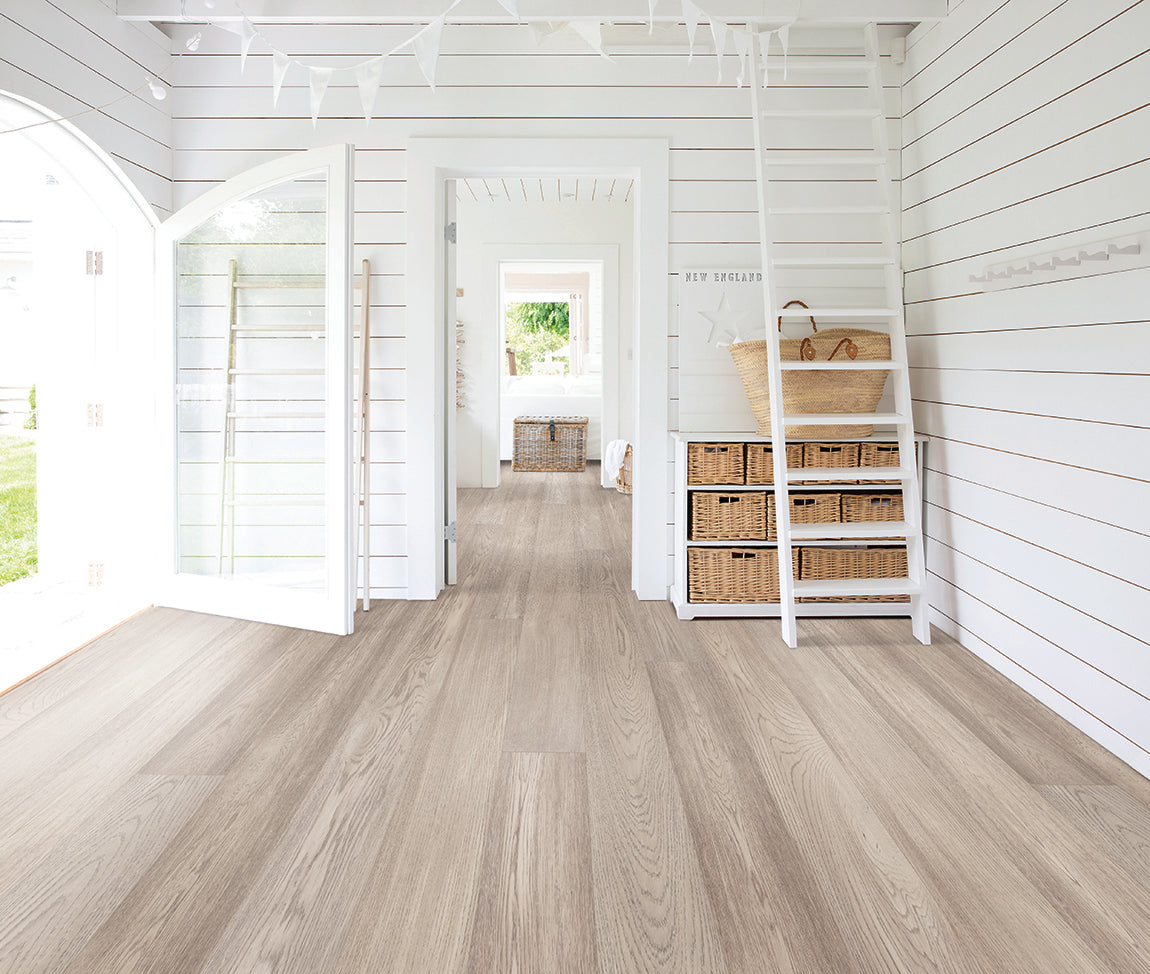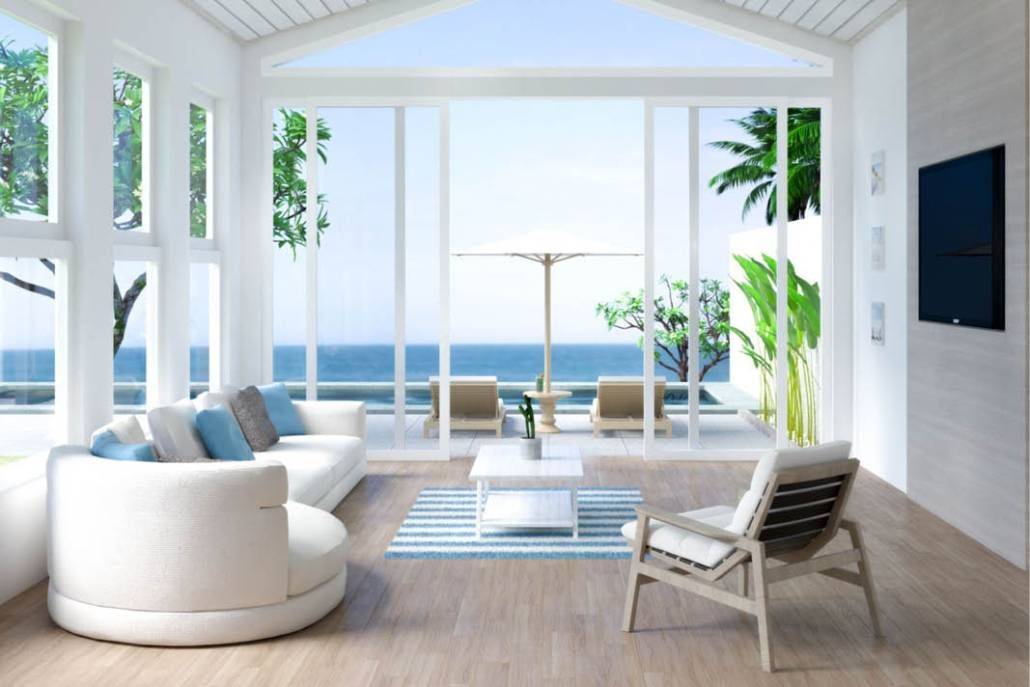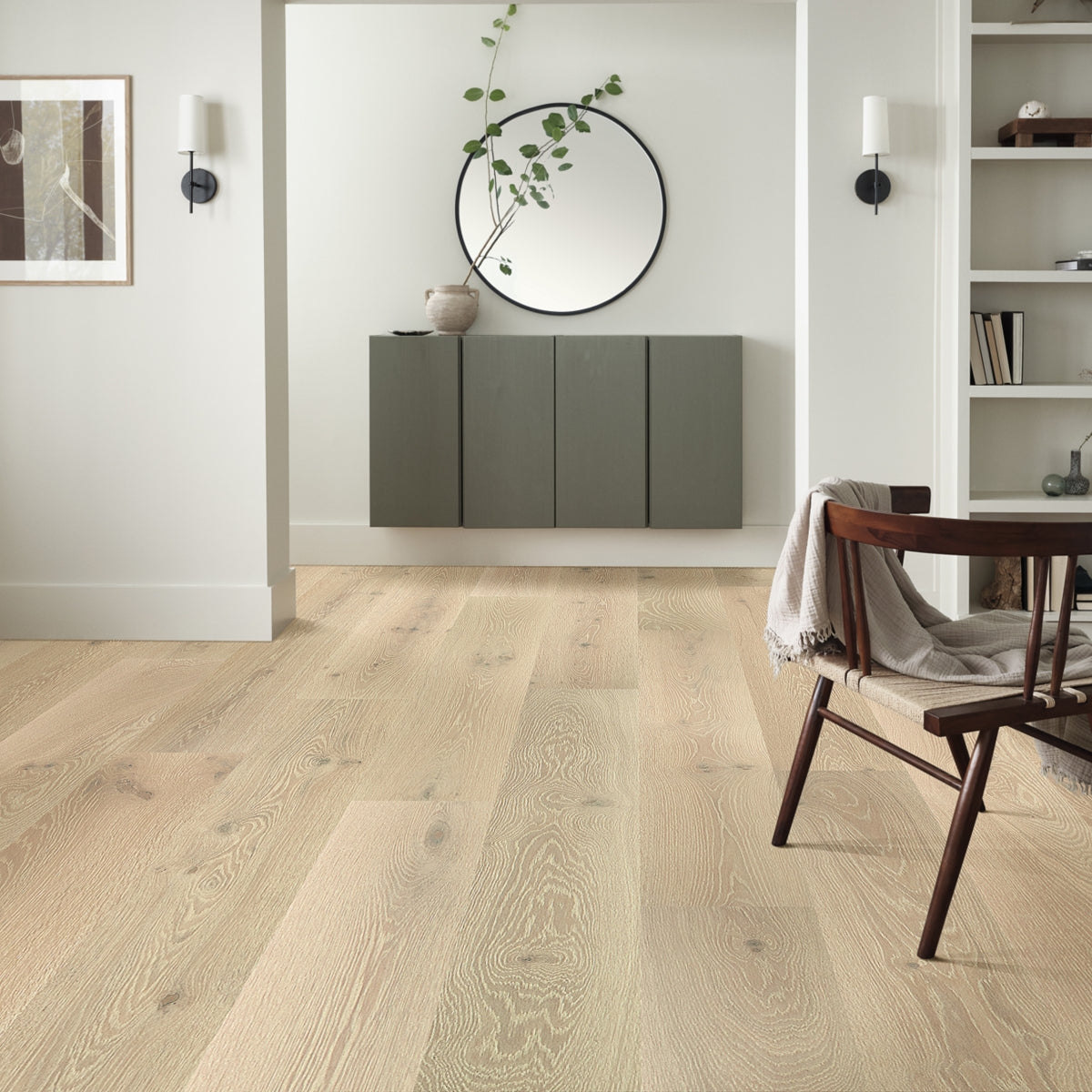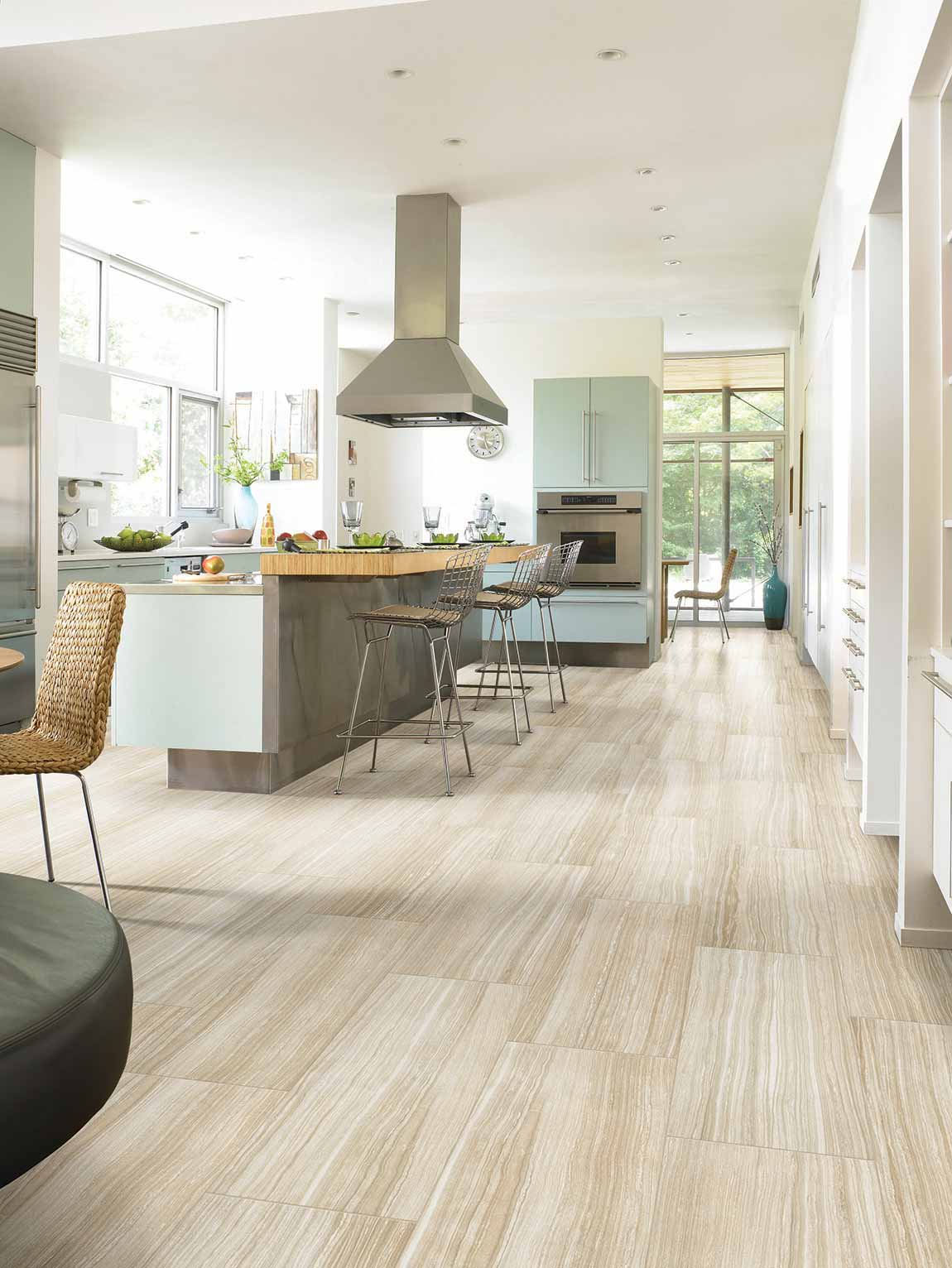For many, the beach house is a sanctuary where the sand meets serenity. When designing or renovating a beach house, flooring choices play a crucial role in creating an inviting and functional space. This comprehensive guide covers a variety of beach house flooring ideas, from traditional wood to modern tiles, and everything in between, ensuring that you find the perfect match for your coastal retreat.
Understanding the Coastal Environment
Living by the beach comes with unique challenges. High humidity, sand, and saltwater exposure require flooring materials that can withstand the elements while maintaining aesthetic appeal. The right flooring not only enhances your home’s design but also should be practical for everyday coastal living.
Common Challenges for Beach House Flooring
- Moisture Resistance: The salty air and humidity can cause wood and other materials to warp or rot.
- Durability: High foot traffic and sand can wear down floors quickly.
- Maintenance: Choosing materials that are easy to clean and maintain is essential to keep floors looking fresh.
Popular Beach House Flooring Options
Exploring various flooring materials can help you make an informed decision for your beach house. Here’s an overview of popular flooring options, along with their pros and cons.
1. Hardwood Flooring
Hardwood floors are a classic choice for beach houses, offering natural beauty and warmth.
Pros and Cons of Hardwood Flooring
| Pros | Cons |
|---|---|
| Timeless aesthetic appeal | Can warp in high humidity |
| Durable with proper maintenance | Requires refinishing over time |
| Easily customizable with stains and finishes | More expensive than other materials |
| Classic feel that increases property value | Can be slippery when wet |
Best Practices for Hardwood Maintenance
- Use area rugs in high traffic zones to minimize wear and tear.
- Regularly clean with a damp mop and avoid excessive water.
- Consider applying a water-resistant sealant for added protection.

2. Vinyl Flooring
Vinyl flooring has become increasingly popular for beach houses due to its versatility and affordability.
Pros and Cons of Vinyl Flooring
| Pros | Cons |
|---|---|
| Water-resistant and durable | May not have the same aesthetic appeal as hardwood |
| Easy to clean and maintain | Can be damaged by sharp objects |
| Available in various designs and colors | Potential for fading over time |
| Cost-effective option | Can feel less authentic compared to natural materials |
Varieties of Vinyl Flooring
Consider luxury vinyl planks (LVP) or vinyl tiles (LVT) for a more upscale look that mimics natural materials.

3. Tile Flooring
Tiles are another excellent choice for beach homes, particularly in wet areas such as bathrooms and kitchens.
Pros and Cons of Tile Flooring
| Pros | Cons |
|---|---|
| Highly resistant to moisture and damage | Can be cold and uncomfortable underfoot |
| Easy to clean and maintain | Installation can be complex and costly |
| Variety of styles, colors, and textures | Grout lines can stain if not properly sealed |
| Durable and long-lasting | Can be slippery when wet |
Choosing the Right Tile for Your Beach House
Opt for textured tiles that provide slip resistance, especially in pool areas or outdoor spaces.

4. Bamboo Flooring
Bamboo is an eco-friendly flooring option that is becoming increasingly popular for beach houses.
Pros and Cons of Bamboo Flooring
| Pros | Cons |
|---|---|
| Renewable and sustainable material | Variable quality depending on manufacturer |
| Durable and can be water-resistant | Can be scratched easily |
| Unique and aesthetically pleasing | Requires specific maintenance to avoid warping |
| Cost-effective compared to hardwood | Limited color options compared to traditional wood |
Maintaining Bamboo Flooring
Use a bamboo-specific cleaner and avoid excess moisture to maintain the integrity of the flooring.

5. Concrete Flooring
Concrete floors are a modern and stylish choice, especially in contemporary beach house designs.
Pros and Cons of Concrete Flooring
| Pros | Cons |
|---|---|
| Extremely durable and long-lasting | Can be cold underfoot without area rugs |
| Resistant to water damage | Requires sealing to prevent staining |
| Can be stained or painted for customization | Installation can be complicated |
| Low maintenance | May crack over time if not properly installed |
Enhancing Concrete Floors
Consider adding area rugs or decorative tiles to warm up the space and add visual interest.

Tips for Choosing the Right Flooring
Selecting the best flooring for your beach house involves considering several factors. Here are some tips to guide your decision:
- Consider Climate: Choose moisture-resistant materials that can withstand high humidity and salt exposure.
- Foot Traffic: Select durable flooring options for high-traffic areas, including kitchens and living rooms.
- Maintenance: Evaluate how much time you want to dedicate to upkeep. Some materials require more maintenance than others.
- Style Preference: Your flooring should reflect your personal style and complement the overall design of your beach house.
- Budget: Set a budget that includes material costs and installation to avoid overspending.
Local Inspirations for Beach House Flooring
Incorporating local materials into your beach house flooring can enhance its aesthetic and cultural relevance. In coastal areas like Cape Cod, for example, many homeowners opt for natural woods that match the local shoreline. In Southern California, light-colored tiles that mimic sandy beaches are popular choices.

FAQs about Beach House Flooring Ideas
1. What type of flooring is best for a beach house?
The best type of flooring for a beach house is moisture-resistant and durable. Vinyl, tile, and treated hardwood are popular choices among coastal homeowners.
2. How do I maintain my beach house flooring?
Regular cleaning and applying protective sealants are essential for maintaining beach house flooring. Also, use area rugs to minimize wear in high-traffic areas.

3. Can I install flooring myself, or should I hire a professional?
While some flooring types like vinyl and laminate can be DIY-friendly, other materials such as tile and hardwood often require professional installation for the best results.
4. Is bamboo flooring a good choice for coastal areas?
Bamboo flooring can be a good choice for coastal areas if properly treated for water resistance. Its sustainability factor also makes it a popular eco-friendly option.
5. Are there any eco-friendly flooring options for beach houses?
Yes, options like bamboo, cork, and reclaimed wood are eco-friendly alternatives that can add character to your beach house while being gentle on the environment.
Conclusion
Choosing the right flooring for your beach house is a pivotal aspect of creating a space that embodies relaxation, style, and durability. Whether you prefer the elegance of hardwood, the practicality of vinyl, or the sophistication of tile, the right flooring can enhance your coastal experience. Knowing the pros and cons of each option and considering your local environment will ensure that your beach retreat remains a stunning sanctuary for years to come.